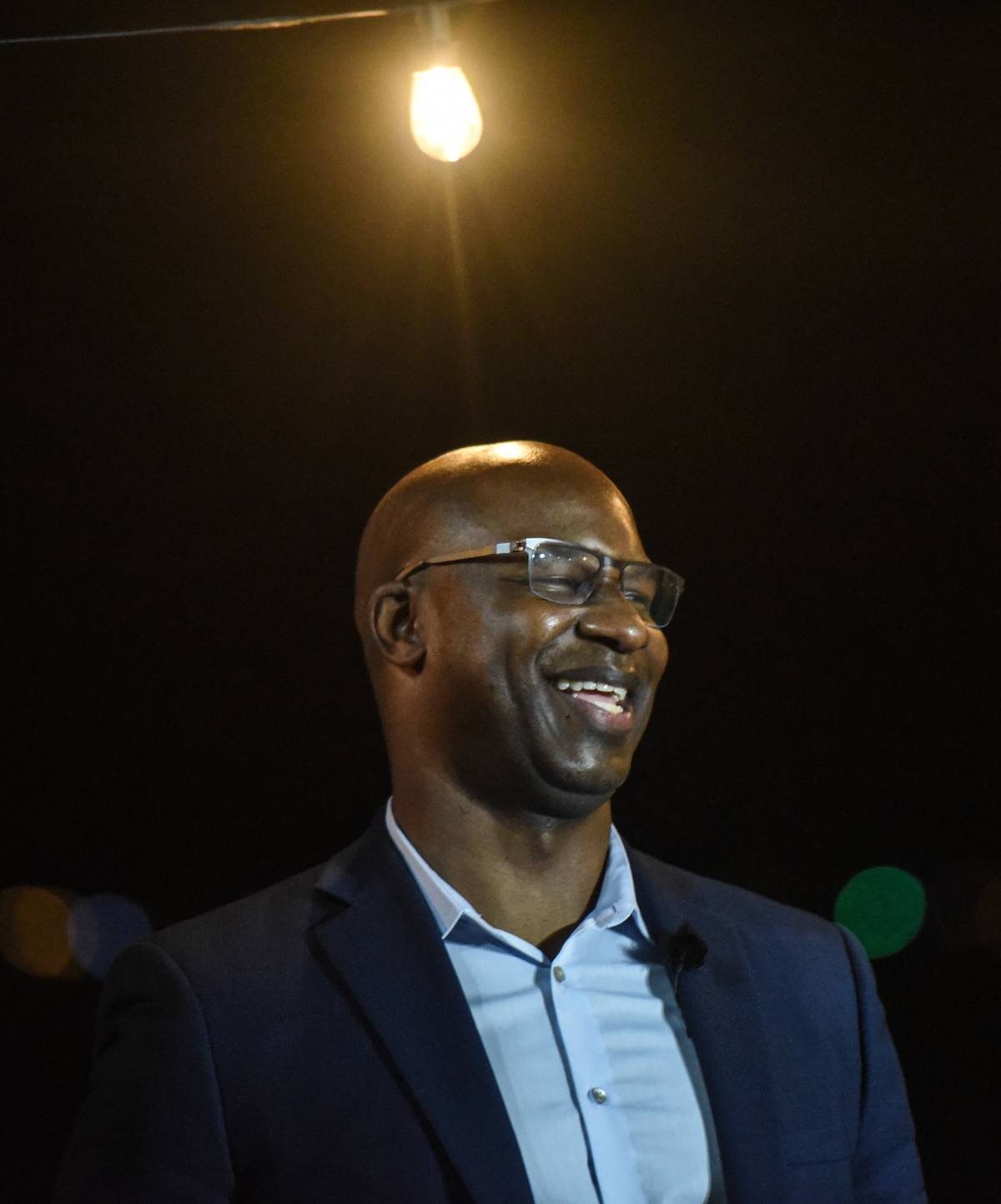Socialist Revolution Storms the Bronx
Democratic congressional primary wins by Jamaal Bowman and Mondaire Jones sweep old-guard Jews from power in New York




The revolution continues its march across the Bronx. After 16-term incumbent Eliot L. Engel’s probable defeat at the hands of former middle school principal Jamaal Bowman in yesterday’s primary, congressional representation for much of New York City’s mainland borough, home to the fabled Grand Concourse, will be split between a progressive insurgent and self-branded leftist firebrand Alexandra Ocasio-Cortez. Will the rest of the nation follow New York’s lead?
Probably not: Though New York has exerted a freakish and not altogether positive pull on national politics lately, the triumph of the ideologically squishy and often baffled-seeming Joe Biden and the overall ambiguous record of leftist candidates beyond friendly coastal enclaves suggests that the triumph in America of the new political brand that calls itself socialism isn’t necessarily inevitable. And yet the enclaves of the progressive socialist communists are expanding, and they’re growing at the expense of figures crucial to the past several decades of Jewish American political engagement.
Though he slinks out of office after a 25-point trouncing from a total political neophyte, Engel spent decades as one of the most powerful members of the House of Representatives. He has been the Democrats’ leader on the House Foreign Affairs Committee since 2013 and the body’s chairman since 2018.
Engel was also one of the bulwarks of the Democratic Party’s support for Israel: It was difficult to argue Democratic enthusiasm for the Jewish state was insincere, or that the country didn’t enjoy substantive bipartisan backing, so long as Engel was taking the lead on recognizing Jerusalem as Israel’s capital and giving prime-time speeches at AIPAC’s policy conference.

Yet Israel eventually became a synecdoche for everything a rising generation of activists despised about the Democratic Party’s leadership—the same members of Congress who dithered on climate change and treated single-payer health care as a threat to capitalism also had an unforgivable fondness for the U.S. alliance system in the Middle East. A failure to enact what its proponents termed “justice” in the United States was also seen as coextensive with a failure to do the same in places many thousands of miles away.
In a thoughtful recent response to an open letter from Rabbi Avi Weiss, Bowman wrote that he would draw on his experiences living and working as an African American man in the South Bronx in approaching Israel-related issues. “The uprising we’re witnessing across the country against police violence also makes me empathize with the everyday experience and fear that comes with living under occupation,” the future congressman wrote, adding, “I also can understand the crushing poverty and deprivation in the Gaza Strip.”
While Bowman’s powerful metaphor ignored the fact that Israel withdrew all of its forces from the Gaza Strip and dismantled all Israel settlements there in 2005 (the territory is now ruled by the Palestinian terrorist militia Hamas, which has fought three wars against Israel since 2009 and regularly bombards Israeli communities with rockets), the facts of the Israeli-Palestinian conflict were hardly the point. The point was to show that Bowman’s approach to Israel would be rooted in a different set of values and experiences than Engel’s had been. Israel would be yet another issue—hardly a minor one, in Riverdale and upper Manhattan—where Engel’s challenger was promising discontinuity with his would-be predecessor.
For many progressives, Engel’s support for Israel wasn’t a side issue, but an especially intolerable symptom of the larger sickness they deplore: the moral and intellectual bankruptcy of American liberalism, and the resulting spinelessness of its leading practitioners. Naturally, pro-Engel endorsements from Hillary Clinton, Chuck Schumer, and Andrew Cuomo had no discernible impact on the race, assuming they didn’t throw additional votes to Bowman.
Most American Jews were perfectly happy to vote for the version of the Democratic Party that the insurgents denounce. But that party no longer looks electorally viable even in disproportionately Jewish districts like Engel’s, even with the advantages of long-term incumbency, plum committee seats, and plenty of cash.
The outgoing congressman was one of countless Jews who thrived within the contradictions, practical entanglements, and ideological zigzagging that has often seemed to characterize America’s liberal party. But the party is changing.
Engel is not the only New York Jewish powerhouse who won’t be in the next Congress. Nita Lowey, the 82-year-old chairwoman of the House Appropriations Committee and another one of the party’s Jewish pro-Israel moderates, announced her retirement this past October, after over three decades in office. Her successor as representative for New York’s 17th Congressional District will be Mondaire Jones, an accomplished African American lawyer in his early 30s who backs a Green New Deal, Medicare for All, and student-debt forgiveness, as well as a number of other positions that the young vanguard is busy establishing as a minimum threshold for party membership.
To Jones’ credit, he doesn’t seem particularly animated by any particular feelings about Israel, whether positive or negative. Which may be the best that American Jews can hope for from the party to which they have historically been attached, and which represents many of the communities in which they live.
Meanwhile, the departures of Engel and Lowey mean that there are two fewer pro-Israel Jewish Democrats in Congress. The loss of two powerful senior lawmakers would be meaningful even in the context of the staunchly pro-Israel Democratic Party of the 1980s and ’90s. Today, their losses seem likely to entrench new political realities that will be less comfortable for American Jews.
Armin Rosen is a staff writer for Tablet Magazine.